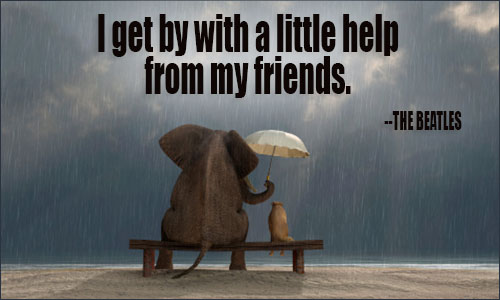Love Quotes For Friends Biography
source(google.com.pk)
,Love Qoutes for Evelyn "Billie" Frechette was born in Neopit, Wisconsin. At age 26, she fell in love with bank robber John Dillinger. She did not participate in his crimes, except for once, when she drove him to a doctor after he was shot. In 1934, Frechette was arrested by Department of Investigation special agents for harboring a criminal. She served two years in federal prison, and was released in 1936. She died on January 13, 1969, in Shawano, Wisconsin
Synopsis
Early Life
Turning Point
Arrest and Incarceration
QUOTES
"John [Dillinger] was good to me. He looked after me and bought me all kinds of jewelry and cars and pets, and we went places and saw things, and he gave me everything a girl wants. He treated me like a lady."
– Billie Frechette
Early Life
Evelyn "Billie" Frechette was born in 1907 in Neopit, Wisconsin, to a French father and a Native American mother. Frechette's father died when she was only 8 years old, leaving her mother to raise Frechette and her four brothers and sisters on her own.
Frechette lived on the Menominee Reservation and attended a mission school there until the age of 13, when she moved to a government boarding school for Native Americans in Flandreau, South Dakota. She attended the school for three years before moving to Milwaukee to live with her aunt. She worked as a nurse there, but work was hard to come by. At the age of 18, she moved to Chicago, Illinois, to be closer to her sister.
Frechette continued to struggle in order to make ends meet, doing housework and waitressing to pay the bills. It was during this time that she met and married Welton Sparks. Their relationship was brief, however; Sparks was sent to Leavenworth prison in 1933 after committing mail fraud. Frechette later told reporters that she never fully understood what Sparks had done. "He never told me what he was up to," she said. "Being married to him didn't amount to much. I lost track of him right away."
Turning Point
That same year, while at a dance hall, Billie Frechette met bank robber John Dillinger. Frechette, who was then 26, fell in love with Dillinger, then 30, despite his criminal activities. "John was good to me," she later told reporters. "He looked after me and bought me all kinds of jewelry and cars and pets, and we went places and saw things, and he gave me everything a girl wants. He treated me like a lady."
After several months ,the couple attempted to marry, but timing was against them. Frechette was unable to complete divorce proceedings before her imprisonment and Dillinger's subsequent death. Although they were never able to complete their nuptials, Frechette acted as Dillinger's wife. Aside from being his lover and companion, Frechette often cooked, cleaned, and ran Dillinger's errands.
Only once did Frechette perform as an accessory to Dillinger's criminal activities, driving a getaway car after Minnesota police discovered the couples' apartment. Dillinger was shot in the leg during the skirmish with police, and Frechette drove him to the doctor. She would later pay heavily for the act.
,Love Qoutes for Evelyn "Billie" Frechette was born in Neopit, Wisconsin. At age 26, she fell in love with bank robber John Dillinger. She did not participate in his crimes, except for once, when she drove him to a doctor after he was shot. In 1934, Frechette was arrested by Department of Investigation special agents for harboring a criminal. She served two years in federal prison, and was released in 1936. She died on January 13, 1969, in Shawano, Wisconsin
Synopsis
Early Life
Turning Point
Arrest and Incarceration
QUOTES
"John [Dillinger] was good to me. He looked after me and bought me all kinds of jewelry and cars and pets, and we went places and saw things, and he gave me everything a girl wants. He treated me like a lady."
– Billie Frechette
Early Life
Evelyn "Billie" Frechette was born in 1907 in Neopit, Wisconsin, to a French father and a Native American mother. Frechette's father died when she was only 8 years old, leaving her mother to raise Frechette and her four brothers and sisters on her own.
Frechette lived on the Menominee Reservation and attended a mission school there until the age of 13, when she moved to a government boarding school for Native Americans in Flandreau, South Dakota. She attended the school for three years before moving to Milwaukee to live with her aunt. She worked as a nurse there, but work was hard to come by. At the age of 18, she moved to Chicago, Illinois, to be closer to her sister.
Frechette continued to struggle in order to make ends meet, doing housework and waitressing to pay the bills. It was during this time that she met and married Welton Sparks. Their relationship was brief, however; Sparks was sent to Leavenworth prison in 1933 after committing mail fraud. Frechette later told reporters that she never fully understood what Sparks had done. "He never told me what he was up to," she said. "Being married to him didn't amount to much. I lost track of him right away."
Turning Point
That same year, while at a dance hall, Billie Frechette met bank robber John Dillinger. Frechette, who was then 26, fell in love with Dillinger, then 30, despite his criminal activities. "John was good to me," she later told reporters. "He looked after me and bought me all kinds of jewelry and cars and pets, and we went places and saw things, and he gave me everything a girl wants. He treated me like a lady."
After several months ,the couple attempted to marry, but timing was against them. Frechette was unable to complete divorce proceedings before her imprisonment and Dillinger's subsequent death. Although they were never able to complete their nuptials, Frechette acted as Dillinger's wife. Aside from being his lover and companion, Frechette often cooked, cleaned, and ran Dillinger's errands.
Only once did Frechette perform as an accessory to Dillinger's criminal activities, driving a getaway car after Minnesota police discovered the couples' apartment. Dillinger was shot in the leg during the skirmish with police, and Frechette drove him to the doctor. She would later pay heavily for the act.
Love Quotes For Friends Tumblr Taglog Forever Leaving Being Fake Changeing With Benefits And Family Letting Your Down Hurting You


Love Quotes For Friends Tumblr Taglog Forever Leaving Being Fake Changeing With Benefits And Family Letting Your Down Hurting You


Love Quotes For Friends Tumblr Taglog Forever Leaving Being Fake Changeing With Benefits And Family Letting Your Down Hurting You


Love Quotes For Friends Tumblr Taglog Forever Leaving Being Fake Changeing With Benefits And Family Letting Your Down Hurting You


Love Quotes For Friends Tumblr Taglog Forever Leaving Being Fake Changeing With Benefits And Family Letting Your Down Hurting You


Love Quotes For Friends Tumblr Taglog Forever Leaving Being Fake Changeing With Benefits And Family Letting Your Down Hurting You


Love Quotes For Friends Tumblr Taglog Forever Leaving Being Fake Changeing With Benefits And Family Letting Your Down Hurting You


Love Quotes For Friends Tumblr Taglog Forever Leaving Being Fake Changeing With Benefits And Family Letting Your Down Hurting You


Love Quotes For Friends Tumblr Taglog Forever Leaving Being Fake Changeing With Benefits And Family Letting Your Down Hurting You


Love Quotes For Friends Tumblr Taglog Forever Leaving Being Fake Changeing With Benefits And Family Letting Your Down Hurting You



.jpg)





































